San
Diego Jewish World
Monday Evening , July
30, 2007
Vol. 1, Number
91
|
Archives Event Tracker HOME Jewish Directory Jewish Grapevine Jews in the News News Sleuths Sports |
| PLEASE SUPPORT OUR ADVERTISERS; THEY ARE HELPING TO BRING San Diego Jewish World TO YOU: America's Vacation Center Bubbla Packaging Systems I'm There For You Baby radio show In the Know' radio show JCC Maccabi games Jewish American Chamber of Commerce Journey to the copper age Old Town Trolley Tours of San Diego Seacrest Village Retirement Communities |
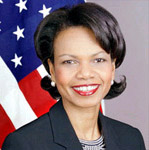
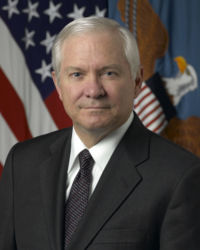
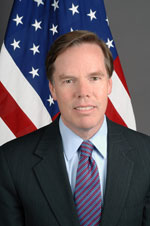

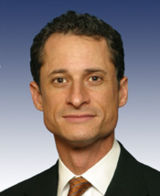





Rice
Gates
Burns
Nadler
Weiner
Rothman
Weinberg Balls
Olmert
Garre
Rice tells of U.S. military assistance
plans
for Israel, Gulf States, Saudi Arabia and Egypt
WASHINGTON, D.C. (Special)—Before leaving
for the Middle East with U.S. Secretary of Defense Robert Gates, Secretary of
State Condoleezza Rice issued the following statement concerning military
assistance to Israel and some Arab states:
In advance of my trip to the Middle East with Secretary Gates, I am pleased to announce a renewed commitment to the security of our key strategic partners in the region.
|
San Diego Jewish World—July
30, 2007 |
To support our continued diplomatic engagement in the region, we are forging new assistance agreements with the Gulf States, Israel, and Egypt. This effort will help bolster forces of moderation and support a broader strategy to counter the negative influences of al-Qaeda, Hizballah, Syria, and Iran. During our visits to Egypt and Saudi Arabia, Secretary Gates and I will meet with our counterparts to discuss ways to advance security and stability in Iraq. I will also meet the Foreign Ministers of the Gulf Cooperation Council countries, Egypt, and Jordan to discuss regional issues in Sharm el-Sheikh, Egypt. Later, I will travel to Jerusalem and Ramallah to continue discussions on the development of a political horizon with Israeli and Palestinian officials. Through our Gulf Security Dialogue, we are helping to strengthen the defensive capabilities of our partners, and we plan to initiate discussions with Saudi Arabia and the other Gulf States on a proposed package of military technologies that will help support their ability to secure peace and stability in the Gulf region. As President
Bush mentioned during Prime Minister Olmert's recent visit, we will move soon to
conclude a new ten-year military assistance agreement with Israel. This
agreement will provide a total of $30 billion to ensure Israel's ability to
defend itself. The President and I have asked Under Secretary Nicholas Burns to travel to Israel and the region in mid-August to finalize these agreements. The preceding story was provided by the U.S. State Department |
|
Burns conducts telephone news conference
to sell proposed Middle Eastern arms deals
(Editor’s Note: Tom
Casey, Deputy spokesperson for the U.S. State Department shared the podium today
with R. Nicholas Burns, Under
Secretary of State for Political Affairs to brief reporters by telephone on the
arms deals Secretary of State Condoleezza Rice and Defense Secretary Robert
Gates will be discussing on their joint trip to the Middle East. A State
Department transcript follows):
MR. CASEY: Okay. Well, good morning, everybody. Thank you for joining us and pleasure to have you all here. I’m sorry we're a little bit late getting going here. I think you have all now seen the statement that we put out in the Secretary's name on assistance agreements with the Gulf states, Israel, and Egypt. I have with us this morning Under Secretary of State for Political Affairs Nick Burns to talk to you a little bit more -- talk in a little more detail about what this means, and particularly about how it plays in with our longstanding commitments to our friends and allies in the region.
Nick, why don't I just turn it over to you, let you make some opening comments, and then we'll go to people's questions.
UNDER SECRETARY BURNS: Tom, thank you very much. Good morning everybody. I'll just have a few brief words to say because I think you've read the statement, then I'll be happy to go right to questions.
As Secretary Rice and Secretary Gates head for the Middle East this week, we wanted to send a strong signal of support for the security concerns of all of our partners in the region, of Israel, of Egypt, of Saudi Arabia, and of the other Gulf states, the members of the Gulf Cooperation Council. And we see this announcement this morning about our future security assistance over the long term to support our broad strategic interest in the Middle East, and that is to maintain a very strong American presence and influence in the region. It is to give specific support to those partners that need it and that's all of them, of course. And it's also a comprehensive step by the United States to address our overall policy objectives in the region.
We are very much engaged diplomatically, of course, on the question of Iraq, but also on the effort to rebuff the attempt by Iran to advance its own strategic interest in the region and to expand its influence in the region. We want to make sure that countries are strong enough from a defensive standpoint to protect their borders, to deal with maritime security as well as other threats to security. We obviously have our eye on the conflict in Lebanon as well. And so it's a time, we thought, for us to reassert the important position of the United States in the region and our relationship with the allies.
There are three components of it that are pretty clear from this statement, but I thought I should just go over them. Number one, we are committing to a new 10-year military assistance program to Israel. We're committing to $30 billion, which is an increase over the last 10-year program begun in 1998 by the Clinton Administration. Right now, we're averaging -- we are at a level of $2.4 billion in U.S. military assistance to Israel per year. That will average now $3 billion per year over the next 10 years. We are phasing out, and have agreed with the Israelis to phase out, economic support funds, so that ends as of this year.
With Egypt, we are -- of course, as you know, have agreed to a new 10-year, $13 billion military assistance agreement with Egypt. We think that will strengthen Egypt's ability to maintain its regional role and we are working separately with the Egyptians on an economic support fund package of assistance which I hope will be -- we will be able to announce in the next 30 days or so.
In addition to that, the other piece of this is that we are -- we'll be beginning the conversation, a serious conversation with Saudi Arabia and the other members of the Gulf Cooperation Council to address their security needs. Of course, we've had a strategic presence in the Middle East that dates back to the Second World War. We've had our Navy in the Gulf, for instance, since 1949. We've had a defense relationship with most of these Arab states, Saudi Arabia and the other Gulf states for the entire time that they've been independent countries. And of course, since the AWACS sale to Saudi Arabia in the early 1980s, we've had a tradition over the last 25 years of significant arms sales to these countries.
The majority of what we are planning with these countries are defensive systems, not offensive systems; the majority. We have -- we do not have a price tag and are not able to give you a number. I was interested to read in the press $20 billion; I suppose this is an educated guess on the part of most members of the press. The reality is, we've had informal discussions with these countries about their defensive requirements over the last nine to 12 months, but we're just now, for the month of August and part of September, going to initiate formal conversations with them.
So we really don't know what the final list of sales will look like, and we probably won't know that for another six weeks or so. And Secretary Rice and Secretary Gates will begin that negotiation or process with them, and then we'll have negotiating teams go out to these countries, specifically to each of them, each member of the GCC, to ascertain exactly what it is that they're interested in acquiring from us.
At that point, we'll be able to put together a list that would a ballpark figure on it. But we don't have such a list right now. We have had preliminary briefings of the Congress over the past ten days, but we've told the Congress these were just informal conversations and we will come back to the Congress with a formal notification of our proposed sales to the Arab countries, probably some time, as I said, in September.
Finally, I would say that we'll have to do a lot of quick follow-up. Secretary Rice and Secretary Gates will be in both Israel and some of these Arab countries this week to talk about these specific packages. I have been asked to travel to the region next week to talk to a number of countries about these issues. And I'll specifically be going to Israel to, I hope, finish this formal agreement that will bring the $30 billion ten-year program into operation. So those are some preliminary comments, and I'll be to take any questions that you have.
OPERATOR: Thank you, sir. If you'd like to ask a question at this time, please press *1 on your touch-tone phone. You will be prompted to record your first and last name. Please un-mute your phone before recording. If you decide to withdraw your question, press *2. One moment, please, for the first question.
The first question
comes from Farah Stockman, Boston Globe.
(jump to continuation)
(Return to top)
Nadler and Weiner announce opposition to
arms
deal in front of Saudi Arabian consulate in NYC
NEW YORK, N.Y (Press Release)– Standing in front of the Saudi Consulate, Reps. Jerrold Nadler and Anthony Weiner, both New York Democrats, announced a Congressional effort to stop the Bush administration from sending a $20 billion arms package of advanced weaponry including satellite-guided bombs to the Saudi Arabian government this Fall. The Congressmen said they will introduce legislation to block the deal “the minute Congress is officially notified.”
Late Friday, Bush administration officials announced they are preparing to ask Congress to approve an arms sale package of $20 billion to the Saudi Arabian government. The package includes Joint Direct Attack Munitions (JDAM’s), satellite guided bombs accurate enough to shoot through the window of a building from jets in any weather. The United States has never sold such advances munitions to Saudi Arabia before. The sale would also upgrade the capability of the Saudi Air Force and provide new naval vessels.
Congress may reject any large arms sale according to the Arms Control Export Act of 1976. The President is required to officially notify Congress of an impending arms deal, who then has 30 days to trigger a review and pass a Joint Resolution of Disapproval.
The Joint Resolution of Disapproval has been used in the past by Congress to affect weapons sales, including in 1986 when Congress successfully convinced then President Reagan to cut back an arms sale to Saudi Arabia. Past administrations have renegotiated sales based on just the prospect if a Congressional Review.
Saudi Arabia has not been a true ally in furthering the United States interests in the Middle East. Just this week, Brig. General Kevin Bergner, the top American military spokesman in Iraq detailed an account of a Saudi Arabian smuggled into Iraq to be a suicide bomber. American officials in Iraq say the majority of suicide bombers in Iraq are from Saudi Arabia and that about 40 percent of all foreign fighters are Saudi. 70% of the most-wanted international terrorists are Saudi Arabians
In February the Saudi Arabian government torpedoed U.S. plans to conduct a high-profile peace summit meeting between Israel and the Palestinian Authority by brokering their own power-sharing agreement, catching the U.S. off guard and ensuring the agreement would not require Hamas to recognize Israel or forswear violence.
And despite assurances to the contrary, Saudi Arabia continues to bankroll terrorist organizations that have attacked both the United States and Israel. In sworn testimony before the Senate Judiciary Committee in November 2005, Deputy Assistant Secretary of the Treasury Daniel L. Glaser indicated that the Saudi Arabian government refuses to crack down on the World Association of Muslim Youth (WAMY), which spreads radical Wahhabism and finances Hamas and Al Qaeda.
“We need to send a crystal clear message to the Saudi Arabian government that their tacit approval of terrorism can’t go unpunished,” said Rep. Weiner. “Saudi Arabia should not get an ounce of military support from the U.S until they unequivocally denounce terrorism and take tangible steps to prevent it.”
"The Bush Administration must learn that Saudi Arabia is not our friend," said Rep. Nadler. " We must not supply arms to Saudi Arabia while they are financing the teaching of Wahhabi terrorism all over the world. It is not accident that 15 of the 19 terrorists on 9/11 were Saudi. Arms supplies to the Saudis may very well be turned against Israel and could easily end up in the hands of terrorists. And, we should remember that the high tech arms we gave to the Shah of Iran ended up in the Ayatollah Khomeini's hands. The same thing could end up happening in Saudi Arabia."
Democratic Reps. Shelley Berkley of Nevada, Joseph Crowley of New York, Marcy Kaptur of Ohio, Carolyn Maloney of New York, Linda Sanchez of California and Jan Schakowsky of Illinois have joined Weiner, Nadler and Rep. Robert Wexler of Florida in support of a Joint Resolution of Disapproval, writing “we have grave reservations that this arms sale to Saudi Arabia could allow weapons to slip into terrorist hands.”
For each of the last three years, Weiner has passed amendments in the House of Representatives banning U.S aid to Saudi Arabia.
The preceding story was provided
by the office of Rep. Jerrold Nadler
JINSA expresses wariness over Saudi arms deal
By
Shoshana Bryen
(Bryen is special projects director for the Jewish Institute for National
Security Affairs)
WASHINGTON, D.C. (Press Release)—The U.S. and USSR used to sell arms to their
Middle East clients, creating an East-West arms race. One of the oddities was
that the American government sold both to Israel and to Israel's enemies - a
sale to Saudi Arabia or Egypt prompting counter sales to Israel, while the
Soviets sold to Syria, Iraq and (post 1979) Iran. It's a new day and an old
story.
Saudi Arabia and the Gulf States will be purchasing multibillions worth of high tech arms from America presumably because they are concerned about threats from Iran. The U.S. will have to provide arms to Israel either so that it can defend against what the Saudis receive or to ensure that Israel's friends in Congress will not oppose the Saudi sale. And Egypt, wedded to the Camp David "understanding" (not actually part of the Camp David Accords) demands a percentage of what is sold to Israel.
The U.S. position is predicated on the assumption that Iran will attack Saudi Arabia frontally and the Saudis will have to respond alone - VERY dubious propositions both. Iran is much more likely to subvert the kingdom by inciting insurrection among the Shiites in the oil producing region. JDAMS won't help. And, should Iran be so foolish as to attack frontally, it is inconceivable that the U.S. would stand by and allow Saudi Arabia - whose long-term security we have guaranteed for more than 50 years - to face Iran alone.
But by our choices, the administration has opened the way for the corollary arms sales at precisely the moment the Russians have been looking to reenter the region as a military guarantor with none of the American - or old Soviet - baggage.
Putin, needing to appease Iran because he has again postponed fueling the Bushehr reactor, and knowing the U.S. can't very well object, quickly announced the sale of long-range aircraft to Teheran. And, because Russia is flush with cash from high energy prices, Putin has forgiven Syrian debt to the old USSR, paving the way for new sales to Assad on credit.
Somehow it seems much more likely that the Russian clients will use the Russian-supplied arms than that the American supplied clients will use the American-supplied arms to advance the aims of their patrons.
And Israel? It is clear that the Israeli sales were timed to blunt Israeli opposition to the Saudi sales - and it worked. The U.S. and Israel see entirely eye-to-eye on the threat Iran poses to the region - both nuclear and Shiite Islamist fundamentalism. The State Department and the Israeli government also appear to see eye-to-eye on including Saudi Arabia in the circle of countries seeing eye-to-eye. But while Saudi Arabia is happy to climb on the anti-Iranian bandwagon, the U.S. and Israel should be clear on the fact that SUNNI Islamic fundamentalism is a threat to both countries through the funding of al Qaeda, the export of fighters to Iraq and the export of violent, anti-Semitic and anti-Western ideology around the world.
The enemy of my enemy can also be my enemy - as Saudi Arabia proves.
The preceding story was provided
by the Jewish Institute for National Security Affairs
(Return to top)
____________
Ayatollah: U.S. and
Israel biggest enemies
WASHINGTON D.C (Press Release)—Just
days after U.S.-Iranian talks about security in Iraq, Iranian Supreme Leader
Ayatollah Ali Khamenei on Saturday declared that the United States and Israel
were his country's main enemies, Reuters reported.
"The Zionist regime [Israel] and the American government are the main enemies of
Iran, and hatred for America is deepening every day around the globe," Khamenei
said.
President Bush and other top administration officials have accused the Islamic
Republic of backing terrorists who target U.S. troops in Iraq. The State
Department consistently lists Iran — a prime benefactor of Hamas and Hizballah —
as the world's leading state sponsor of international terrorism.
(Return to top)
Anti-terror bill included provision for stepped-up
security cooperation between U.S. and Israel
WASHINGTON, D.C. (Press
Release)—The House on Friday passed legislation by a vote of 371 to
40 that includes provisions aimed at strengthening U.S.-Israel
homeland security cooperation.
The bill, which implements the recommendations of the 9/11
Commission, includes a provision that creates an Office of
International Cooperation within the Department of Homeland
Security, which will be responsible for matching U.S. entities with
non-U.S. entities for partnering in homeland security research
activities.
Israel is one of five countries recognized as potential partners in
this endeavor. The legislation, which received final Senate approval
on Thursday, now goes to the president for his signature.
The preceding article was
provided by the American Israel Public Affairs Committee
(Return to top)
House Appropriations Committee
approves upgrade of U.S.-Israel Arrow anti-missile system
WASHINGTON, D.C (Press Release)—The House Appropriations Committee voted on Wednesday, July 25, to provide $26 million in federal funding for the Arrow System Improvement Program (ASIP). ASIP will use the funding, which came at the request of Congressman Steve Rothman (D-NJ), to test the capacity of the Arrow Weapons System (AWS) to handle more intense ballistic missile threats from Iran, such as multiple warheads and faster reentry vehicles. AWS is a proven ballistic missile defense system developed jointly by the United States and the State of Israel.
Explaining his advocacy of this upgrade to the Arrow system, Rothman said: “The Arrow program is one of the most advanced missile defense systems around and has been proven to work in tests against real and surrogate targets in California and Israel. It provides essential protection against ballistic missiles for Israel’s civilian population, as well as U.S. troops in the Middle East. In light of Iran’s open hostility toward the U.S. and Israel, I consider increasing the effectiveness of the Arrow system to be essential to our defense. This technology, along with diplomacy, can help us avert another deadly and costly war.”
The most recent successful test of the Arrow Weapons System took place in February 2007 as part of the Arrow System Improvement Program (ASIP), which is being carried out by Israel and the United States. The Arrow Weapons System provides Israel an indigenous capability to defend against short- and medium-range ballistic missiles and helps ensure U.S. freedom of action in future contingencies. In addition, U.S. participation in the Arrow development effort ensures interoperability of the Arrow and the Israeli Missile Defense System with deployed U.S. missile defense assets.
The ASIP effort will enhance the performance of the Arrow Weapons System to defeat longer-range and more robust ballistic missile threats expected to be introduced in the Middle East in the near future by Iran.
Congressional funding for ASIP began in FY2001, with all of the funding previously requested by the Senate Appropriations Committee. Rep. Rothman’s successful advocacy for the advanced components of the Arrow system marks a historic first for the House Appropriations Committee, which in the past has not funded ASIP.
All told, the House version of the FY2008 Defense Appropriations Bill, which is likely to be debated by the full House of Representatives next week, calls for a total of $79.2 million for ASIP, including $53.2 million for ongoing programs and an additional $26 million requested by Rep. Rothman for the study. The legislation also includes another $37.4 million for the co-production of Arrow missiles in the U.S. and $26 million for a feasibility study of the Short-Range Missile Defense Program, also known as "David's Sling," bringing the total recommended funding for programs related to the U.S.-Israeli Arrow Weapons System to $142.6 million.
This year, Rothman became the first-ever Bergen County Congressman to join the
House Appropriations Committee’s Subcommittee on Defense, which is where all
military and national defense-related spending legislation originates. The
Congressman says that ending the war in Iraq and strengthening the strategic
partnership between the U.S. and Israel are among his top priorities.
The preceding article was provided by Congressman Steve
Rothman
(Return to top)
AJC praises $30 billion Israel component of Bush
administration's Middle East arms sales plan
NEW YORK (Press Release) - The American Jewish Committee lauds the U.S. State Department announcement today that it soon will conclude a new ten-year military assistance agreement with Israel.
"This military aid commitment is a solid
investment in the vital interests of the United States," said AJC Executive
Director David A. Harris. "The U.S.-Israel relationship is firmly founded on
shared democratic values, common strategic interests, shared visions for peace
in the Middle East."
Secretary of State Condoleezza Rice confirmed today that the U.S. "will move
soon to conclude a new ten-year military assistance agreement with Israel." This
agreement will provide, among other elements, "a total of $30 billion to ensure
Israel's ability to defend itself."
"We look forward to the successful conclusion of the new agreement," said
Harris. "It will further solidify the U.S. commitment to assuring Israel's
qualitative edge over hostile neighbors."
The preceding story was provided by
the American Jewish Committee
(Return to top)
Over 10,000 scholars, including
32 Nobel laureates, protest proposed British academic boycott of Israel
NEW YORK (Press Release)— The global backlash against the recent vote by the
British University and Colleges Union (“UCU”) to promote a boycott of Israeli
academics and institutions grew in scope and strength today as Scholars for
Peace in the Middle East (“SPME”) announced that over 10,000 academics
from nearly every level of academia, 32 Nobel Laureates, 53 university and
foundation presidents have signed a public declaration demanding that the
boycott effort be immediately overturned.
SPME said it will deliver to the UCU the Statement as an expression of outrage
against the boycott, and as an act of solidarity with their Israeli academic
colleagues.
“Today more than 10,000 of the world’s leading scholars speak together with one voice to demand academic freedom for all scholars, and to declare that we are all Israeli academics for purposes of any academic boycott. We will regard ourselves as Israeli academics and decline to participate in any activity from which Israeli academics are excluded,” said Professor Steven Weinberg, University of Texas, Austin, who was awarded the Nobel Prize in Physics.
Added Dr. Edward Beck, President of Scholars for Peace in the Middle East and Professor of Psychology, Walden University: “The decision by the UCU to promote a boycott is a disgraceful anti-intellectual act that replaces factual discourse with a one-sided political agenda, and turns morality and the notion of freedom on their head. It says more about the boycott proponents than those to be boycotted. All of those who believe in academic freedom must speak forcefully to prevent a minority of extremists in the UCU to politicize, control and shut down the free exchange of ideas, where any group, whether based upon religion or national origin is singled out for exclusion. In moving this boycott proposal forward, members of the UCU are, in fact, separating themselves from the international academic community, and deeply undermining their credibility in the process.”
Added Judea Pearl, Professor of Computer Science at UCLA and President of the Daniel Pearl Foundation: “For those of us who are actively engaged in peace-building programs in the Middle East, the UCU vote came as a stab in the back to the efforts in which we have invested so much energy and hope.
I find it hard to understand how my academic colleagues in the UK could stand by and let a handful of anti-coexistence radicals hijack their Union and stain their professional reputation by trampling on academic freedom, one of the most sacred tenets of free societies.”
Stated Alan Dershowitz, Felix Frankfurter Professor of Law at Harvard Law
School, who drafted the SPME statement with Professor Weinberg and Dr. Beck:
“Never before in modern history have so many academics from such diverse
backgrounds been so united in condemning an attack an academic freedom. Beyond
the sheer numbers of academics who have joined in solidarity with their Israeli
colleagues, the signatories are a cross-section of many of the most respected
scholars in the world. The message of the signatories is crystal clear: should
the UCU go forward with a boycott of Israeli academics and institutions, the end
result will be a self-inflicted wound on British academia.”
(Jump
to continuation)
New
British Minister Balls opposes Israel boycott
LONDON (Press Release)—A senior member of the British government has
publicly opposed the threatened boycott of Israeli academics by the
UK teachers’ union UCU. The recently appointed secretary of state
for children, schools and families, Ed Balls, offered an assurance
in a meeting in London last week with his counterpart, the Israeli
education minister Yuli Tamir.
It was the first stance against the proposed academic boycott of
Israel by Britain’s University and College Union taken by a member
of prime minister Gordon Brown’s new cabinet.
Also last week, members of parliament from all three major parties
condemned the UCU initiative. “Such boycotts threaten academic
freedom and intellectual exchange, and cannot be acceptable," said
Iain Wright, undersecretary of state at the Department of
Communities and Local Government.
At a general congress in late June, the UCU passed a motion
committing the union to further discussion of a boycott of Israel
that would eliminate cooperation between Israeli and British
academic institutions, in protest of Israel’s treatment of the
Palestinians.
The preceding story was provided by the World Jewish Congress
Olmert pledges Israel funds for Shoah
survivors
JERUSALEM (Press Release)—Israel’s prime minister, Ehud Olmert, has
promised to provide state funds to needy Holocaust survivors, amid
criticism over Israel’s foot-dragging on the issue. "We have defined the
criteria to distribute hundreds of millions of shekels to Holocaust
survivors so that each one of them can live decently," Olmert said
during the weekly cabinet meeting.
The ministries of finance, social affairs and pensions were to sign an
accord cementing these criteria today, the prime minister pledged. A
foundation representing the interests of survivors accused Olmert of
dragging his feet on the issue, after he had promised at the annual
Holocaust Remembrance Day in April to do more for the estimated 60,000
to 80,000 survivors in Israel living below the poverty line.
"Israel has profited from German reparations ... but has
abstained from transferring between two and five billion shekels (US$
0.5 - 1.2 billion) owed to the survivors," Gal Rotem, an official with
the foundation, told AFP, adding: "Time is important. Each month, a
thousand survivors of the Nazi hell are disappearing." Some 250,000
Holocaust survivors are estimated to live in Israel.
The preceding story was provided by the World Jewish Congress
High tech line of Israeli encapsulated skin care
products about to burst on the global market
By Nicky Blackburn
Israel21C
NETANYA, Israel—Idan Harpaz isn't quite ready for the media. Micro encapsulation company Tagra Biotechnologies has been in such a busy period of development and growth in the last few years that CEO Harpaz hasn't spared much time on thinking about how to present his company to journalists or media professionals. That's all about to change. With an array of products for some of the world's largest skincare and pharmaceutical multinationals about to hit the market, Tagra can't stay under the radar for much longer.
Tagra has developed a micro encapsulation system that delivers active materials to the skin when they are needed. This is the brave new world of skincare, and also has applications for the dental, and pharmaceutical industries.
"Once people understand this technology the amount of new ideas they come up with is huge," says Harpaz, who joined the company a year ago. "My challenge coming into this company was to focus on what brings business first without losing the long-term potential."
So what are microcapsules? Basically they are minute little capsules that can contain a number of natural or chemical substances. In Tagra's case this includes vitamins, evening primrose oil, tea tree oil, retinol, or hippophae oil (sea buckthorn). These tiny encapsulants can be added to any cream or gel, and burst open when they are rubbed in, delivering their contents straight to the skin.
Harpaz pours out a capsule mixture onto the table. It has the look and texture of a very soft powder. He rubs it between his fingers. "You can rub it all you like now but the capsules won't break open. Once you put them into a cream, however, they become soft and flexible. Once you rub them into the skin they break and release the active material," he explains.
The benefit of these capsules is that they enable manufacturers to use beneficial substances that might otherwise cause problems in a cream or gel. Hippophae oil, for example, has important anti-aging activities, but it is an unattractive red color and it smells unpleasant. When it is added to a cream, the color is not even and the odor is offputting. Put the oil in capsules, however, and they can be added to the cream without any problem. The material is only released when it reaches its target.
It's the same with retinol, which is one of the best anti-aging substances about. "Retinol has been in and out of the market many times because of the problems stabilizing the creams," Harpaz tells ISRAEL21c. "The cream would go yellow or even separate, and the shelf life was very short."
Using Tagra's capsule system the company not only ensures that the retinol can be blended into the cream successfully, but it increases the shelf life of the retinol by between three to six times. (Jump to continuation)
 Letter from Jerusalem By Ira Sharkansky |
Christian Zionists are welcome visitors in Israel
JERUSALEM—When I was an Assistant Professor at the University of Georgia 1966-68, I neither hid nor emphasized that we were Jews. I do not recall if there was an organized community in Athens. The children were too small to worry about their religious education. I remember a lunch with a senior colleague who spoke with pride about the progress being made at the university. "Now we are good enough to attract northerners to the university, like Ira. Soon we may be good enough to attract Jews." I perceived the remark to be philo-Semitic, rather than anti-Semitic. Another of my senior colleagues invited graduate students and young faculty members to his home. His evenings featured the singing of Christian hymns.
When the Six Day war occurred, I was invited to a meeting in one of the better homes. I may have been the only Jew among the lawyers, physicians, businessmen, and university people, all worried about Israel and donating money. It was my first encounter with support for Israel among religious Protestants, especially Baptists and other Fundamentalists.
Since then the phenomenon has become well known. It includes pastor-led visits to the Holy Land, which combine Christian sites in Jerusalem and the Galilee, a dip in the Jordan, a flag-waving parade in Jerusalem, a song fest with Israeli tunes in Hebrew, and expressions of support for Israel and the Jewish people. Back home, the preachers and their flocks have been important in the support of Republican presidents, especially Ronald Reagan and George W. Bush. Their intense opposition to abortion, stem-cell research, plus support for prayer in the schools and faith-based social programming provokes the concern of liberal Jews, especially the Conservative and Reform varieties. However, their ringing endorsements of Israel go over well with most American Jews, and earn photo opportunities with Israeli prime ministers.
The same groups have made significant contributions to campaigns to aid Israelis in distress, as in areas affected by Hizbollah rocket attacks during the summer of 2006, and absorption programs for Russian and Ethiopian immigrants. Occasionally there are missionaries who seek to spread their faith, but they are less prominent than enthusiastic supporters who have adopted the label of Christian Zionists.
Some of their sweeping endorsements of all that Israel does (and sometimes wanting more) may embarrass the more nuanced Israelis, but they are good to hear against the efforts of Presbyterians and others who wanted to punish Israeli aggression and occupation by disinvestments at the least. We have earned to filter out demands that we replace the Muslim structures on the Temple Mount/Noble Sanctuary with the Third Temple, and apocalyptic rhetoric that would have Jewish survivors accept Jesus in the end of days.
Now there are nuances on the Christian right. Some pastors are speaking about a fair solution, and justice for both parties. Not surprisingly, there is a limit to Christian congeniality. Against the new voices are some old ones. One quotation from a recent issue of the International Herald Tribune
God gave to Abraham, Isaac and Jacob a covenant in the Book of Genesis for the land of Israel that is eternal and unbreakable, and that covenant is still intact . . .The Palestinian people have never owned the land of Israel, never existed as an autonomous society. There is no Palestinian language. There is no Palestinian currency. And to say that Palestinians have a right to that land historically is an historical fraud.
Whatever develops from this will join the fall out from the Palestinian civil war, and may leave at least a small mark on the Middle East. We hear that President George W. Bush wants to see the declaration of a Palestinian state before he leaves office. President Shimon Peres, with substantially less authority, still dreams of a New Middle East.
We'll see. It may be exciting.
Open Nazi archives, Congress members urge Europe
WASHINGTON—Members of the
United States Congress have urged France to ratify amendments
allowing for the opening of the Bad Arolsen Nazi archive.
Led by Congressmen Alcee L. Hastings and Robert Wexler, 34 members
of Congress sent a letter to French foreign minister Bernard
Kouchner last week urging the parliamentary approval of an agreement
which would allow the opening of the vast archive documenting
prosecution by the Hitler regime.
The International Commission of the International Tracing Service
agreed in May to begin the transfer of Holocaust-related documents
to institutions such as Yad Vashem Memorial and the US Holocaust
Museum, pending the ratification by all eleven signatory states to
the 1955 Bonn Agreement.
Thus far, only eight countries have passed legislation; France,
Greece and Italy have not. In France, legislation related to the
amendment has been drafted and is awaiting approval by the cabinet
before it can be sent to the National Assembly for ratification.
The preceding story was
provided by the World Jewish Congress
LOS ANGELES, California—The Simon Wiesenthal Center applauded
Argentine Defense Minister Nilda Garre's decision to remove any
reference to the religion of a military officer’ from their
personal files, and to exclude any question about religion in future
admission procedures.
“This decision is
part of necessary reforms for a complete integration of the Army
into a democratic society. We offer to the Ministry of Defense the
Wiesenthal Center’s educational resources to confront
discrimination, and especially our expertise in exposing the
educators who instruct soldiers to the use of modern technology such
as Internet, to promote hate and intolerance,” the organization
wrote to Garre.
The preceding story was provided by the Wiesenthal Center
|
|
Adventures in Cruising
Carnival
Elation--San Diego-Mexico
|
United
States of America
NEW YORK (Press Release) — Hadassah, the Women’s Zionist Organization of America, has honored five local chapters with the Hannah L. Goldberg Award, recognizing their outstanding group-study programs in Jewish education. The units, chosen from study groups across the nation, were announced at Hadassah’s 93rd National Convention in New York, New York. The award was presented by National Board member Debbie Friedman. The 2007 winners are:
First Place:
Glens Falls Chapter of the Upper Mid-Atlantic Region for their three innovative educational programs: two distinct Rosh Hodesh programs and a “Celebration of Life” Holocaust education project.
The first Rosh Hodesh program utilized the “Moonbeams” curriculum as well as material culled from various outside sources. Topics included spiritualism in prayer, psalms, and women rabbis “claiming a feminist heritage.” The second Rosh Hodesh program was formed this year for the 20-45 year age group with the goal of perpetuating Jewish life in northeastern New York. This group focused on holiday celebrations by planning activities such as Lag B’Omer bonfires or discussions regarding the relevance of Jewish holidays to their lives.
Finally, the “Celebration of Life” Holocaust education project was aimed at 8th and 10th graders and the area’s general adult population. The program began in November 2006 when the program chair approached English and history teachers at local high schools to inquire about the possibility of Holocaust survivor Rena Bernstein speaking at their schools and, later, creating a follow-up project on the Holocaust in conjunction with other local schools. The idea met with an overwhelmingly positive response, and Bernstein spoke at a large number of local high schools.
Sunny Buchman accepted the award on behalf of the chapter. (Jump to continuation)
 Jews
in the News Jews
in the News
-------------------------------------------------------------------------------------------------------- Like you, we're pleased when members of our community are praiseworthy, and are disappointed when they are blameworthy. Whether it's good news or bad news, we'll try to keep track of what's being said in general media about our fellow Jews. Our news spotters are Dan Brin in Los Angeles, Donald H. Harrison in San Diego, and you. Wherever you are, if you see a story of interest, please send a summary and link to us at sdheritage@cox.net and we'll acknowledge your tip at the end of the column. To see a source story click on the link within the respective paragraph. |
*The driving
force behind Bratz: The Movie is an Israeli veteran of
the toy industry, Avi Arad, who once worked for that arch rival
doll, Barbie. The
story by Geoff Boucher is in today's Los Angeles Times.
*Israel
is preparing to remove some of the estimated 500 check points in
the West Bank in a gesture to Palestinian President Mahmoud
Abbas, according to a Reuters
story
carried by Ha'aretz.
*A memorial to the Jewish partisans who fought against
the Nazis in Europe will be constructed at Mount Herzl.
Amiram Barkat has the
story
for Ha'aretz.
*Cancer has claimed the life of Rabbi Carole Meyers, 50, who was
the first female rabbi in the Los Angeles area. The
obituary by Claire Noland is in today's Los Angeles Times.
*Israel's Prime Minister Ehud Olmert has given his blessing to a proposed sale of high tech arms to Saudi Arabia, saying he understands why the U.S. wants to build up the country as a counter-force to Iran in the region. The Bush Administration also plans to provide Israel with an even greater defense capability. The story by Steve Weizman of the Associated Press is in today's San Diego Union-Tribune.
*Fathers and daughters have been
known not to speak to each other in many a family, but when they
are contesting for control of a publicly traded company, a feud
can be particularly messy. So meet Sumner Redstone
and his daughter Sherry Redstone of Viacom. The
story by Claudia Eller is in today's Los Angeles Times.
*David Shaw,
90, a screenwriter known
for the movie If It's Tuesday, It Must Be Belgium, has
died in Beverly Hills. An
obituary by Valerie J. Nelson is in today's Los Angeles
Times.
*Los Angeles City
Councilman
Jack Weiss is in an awkward position. He'd like to
raise money for a subway, which might require a tax increase.
He'd also like to run for city attorney, which may mean not
proposing any hikes in taxes. A
column by Steve Hymon is in today's Los Angeles Times.
________________________

Click the ad above to go to the "I'm there for you baby" website
|
|
QUESTION: Hi, thanks for having this call for us. This full package, this whole initiative started about a year ago before there were changes in U.S. posture towards Iran, and I was just wondering if there's any concern that the way the package is being sold as this counter to Iran, that that might undermine the current effort to enlist Iran's support in Iraq?
UNDER SECRETARY BURNS: Well, first of all, Farah, let me say that the package of assistance agreements announced today speak really to our broadest strategic interest in the region and that is having strong partners. And so the primary rationale for going ahead with U.S. military assistance to Israel, Egypt and the other Arab countries is to strengthen them, so that they can be strong on all the other issues that are important to them and to us.
Second, I would bring you back to the point I made in my introductory comments, this is not a departure for the United States, this is not a new initiative. We have been -- we've had a security assistance relationship with most of these countries for decades -- for some of them since the very beginning of their existence as independent nation states. And so it's not as if we're somehow introducing a new element in the region. We think both the presence of the United States in the region as a strong country and the strengthening of our partners is the best way to ensure long-term stability and long-term peace.
Third, the Iran element is one factor. It's not the overriding factor in why we're doing this. But it is true that if you travel to Israel, if you travel to Egypt and if you travel to each member of the Gulf Cooperation Council, there is a high degree of concern about Iran's quest to become a nuclear weapons power. But also about the fact that Iran has, as you know, funded and armed most of the Middle East terrorist groups that are bedeviling Israel, the moderate Palestinians, the Lebanese Government and the Iraqi Government, from Hamas to Hezbollah to the Shia militants in Iraq.
And so Iran is a factor in this, but it wasn't the overriding factor and we certainly would have gone forward with these sales regardless. But I think the Iranian factor has been such an acute concern for these countries, as they mentioned to us, that's been true in the Gulf security dialogue that Secretary Rice has had -- she's had four meetings since September -- that issue has come up repeatedly. It's true in our conversations with all these countries. So it's a factor among several that lead us to put forward these packages today.
OPERATOR: Our next question comes from Matthew Lee of Associated Press.
QUESTION: Yeah. Hi, Nick. It's Matt Lee. I'm just wondering -- I know you can't give the details of the package to Saudi and the GCC, but what about a range? Is the range that we've seen reported out there, is that -- does that match with what your preliminary talks have resulted in?
UNDER SECRETARY BURNS: Well, I'm being quite sincere in not getting you a budgetary figure; we simply don't have one. We have a sense -- a very strong sense -- of what kind of assistance each of these countries will need individually because we've had conversations with them.
QUESTION: Yeah.
UNDER SECRETARY BURNS: What we've not had yet and what we will now begin in the next -- and it'll take six weeks to do this -- is formal negotiations with them where they say to us, yes, we would like to acquire A, B and C. And so it really is impossible to put a dollar figure on this. Now I will say this: obviously, I would think that the sales to Saudi Arabia and the other Gulf states would certainly be in the billions of dollars. But how many? I don't know at this point. And you know, we will establish that ballpark figure in a more specific list, when we formally notify the Congress in September.
QUESTION: But you're saying right now you don't even have a ballpark range?
UNDER SECRETARY BURNS: Well, the range is so broad that it would be meaningless, because again --
QUESTION: But it helps us a lot if you --
UNDER SECRETARY BURNS: Well, I know. I mean, you want to put a price tag on it. I understand that. Here's the problem. We have a notional list of sales for each of these countries. It's notional. Those lists could change quite significantly depending on the negotiations over the next six weeks. And therefore to try to -- I mean, to give you a figure would really be irresponsible, because it really wouldn't mean anything. It wouldn't have any basis connected to reality. We will, I think, be able to do that in the first -- when we go to the Congress and we'll certainly announce publicly what we think the ballpark figure is. But right now it's not possible to do it. When we've had our informal conversations with Congress, we've said that.
(Jump to 2nd continuation)
The Jewish Grapevine

|
COMMUNITY INTEREST NEWS—Not
all stories
affecting the
Jewish community and/or Israel involve Jews as direct participants, so
they really don't quite fit the requirements for the "Jews in the News"
column above. Yet, there obviously is a community interest in such
stories, so we will endeavor to provide links to them in this space:
●A poll of Palestinians in both the West Bank and in Gaza
indicates that more than two-thirds want early elections as a
way to resolve the current political crisis. Of these,
about 15 percent said they would vote for Hamas, while more than
40 percent said they favored Fatah, the party of Mahmoud Abbas.
The
story was carried today by Ha'aretz.
DATEBOOK—Following are some announcements of upcoming events,
which you also will be able to access from the respective
calendar date in our
event tracker:
●September
6—Mark
Silberstein discusses, "Israel, Always A Current Event," at
12:45 p.m. at the Jewish Family Service College Avenue Senior
Center, 4855 College Avenue, San Diego. (619) 583-3300.
●September
12—the
Jewish Family Service's College Avenue Senior Center hosts a
Rosh Hashanah luncheon at noon. Suggested donation $3
seniors, $5 others.
●September
20—Eileen Wingard
presents a biographical memorial tribute to opera singer
Beverly Sills, at 12:45 p.m.
●September 21—SDSU
History Prof. Lawrence Baron
presents and leads a discussion on the Danny Thomas version of
The Jazz Singer.
Davis announces appropriations for police, juveniles
WASHINGTON (Press Release) – Continuing her long-time support for local law enforcement, Congresswoman Susan Davis has secured $500,000 in federal funding for the San Diego Police Department’s technology improvement effort.
“As we move into the 21st century, today’s police officers need more than just handcuffs and weapons to be effective. They need quick access to information,” said Davis. “This money will help give the San Diego Police Department the technological tools necessary to prevent crime and, just as important, devote critical time and effort towards community policing.”
With the funding, the San Diego Police Department will purchase, develop and implement technology that enables patrol officers and investigators to access all relevant law enforcement data in a mobile environment. Access to state-of-the-art information — GPS tracking, photos, fingerprints, mapping and others — will help the Police Department solve violent, property and high technology crimes.
The community of San Diego will benefit directly from the most effective use of scarce police officer and investigator resources, and the funding will also help ensure citizen safety, given the increases in violent, gang related crime, as well as high-tech crime, in San Diego.
The money was designated in the Commerce, Justice and State Department Appropriations legislation passed by the House of Representatives.
Also included in the bill was $100,000 for the Children's Initiative Youth Diversion Program in San Diego. The program is designed to target first-time juvenile, non-violent offenders and provide them with a supervised diversion program. It provides these offenders with an opportunity to avoid a criminal record if they successfully complete the program.
Started in 1997, the program now serves over 200 juveniles – incorporates education on the juvenile justice system, meetings with the youth and family members, counseling, and community service and tutoring. 70% of program participants demonstrate improved school attendance and higher GPA, and the program is now listed by the State of California in its “Promising Practices” list.
The spending bill now moves to the Senate.

California, Arizona & Nevada
sales positions
|

{Click the above ad for more
information}
 The Jewish Sports Fan
The Jewish Sports Fan
 |
Unless otherwise indicated, source for these stories is today's edition of
The San Diego Union-Tribune, to which we gratefully provide the links below.
We do not apply halacha to determine if a player is Jewish; rather, if he or
she has a Jewish parent or has converted to the faith, we count him or her
as a member of our community.
TENNIS—Up in Stanford, Shahar Pe'er of Israel and Sania Mirza of India won the WTA $600,000 Bank of the West doubles championship in a match against Victoria Azarenka of Belarus and Anna Chakvetadze of Russia, 6-4, 7-5. In the Jerusalem Post, the doubles partnership is seen as what can be done when Jews and Muslims work together.
BASEBALL—Among the Hall of Famers on hand to congratulate Tony Gwynn and Cal Ripkin at their induction ceremony at Cooperstown yesterday was Dodgers pitching legend Sandy Koufax. A picture of the way he looks today is in the San Diego Union-Tribune. ... Scott Feldman pitched an interesting inning and two thirds yesterday, giving up three hits, two walks, but luckily for him only one run. His Texas Rangers had zero offense however, losing to the Kansas City Royals 10-0. ... Kevin Youkilis hit a solo homer, his 11th, against the Tampa Bay Devil Rays, but his Boston Red Sox lost 5-2. For Youkilis, the round-tripper was the 55th RBI of the season....
FOOTBALL—At the bottom of its column about the San Diego Chargers, the San Diego Union-Tribune has a section called "Nuts and Bolts"—but really isn't that a risqué way to announce that Igor Olshansky didn't practice yesterday because of a groin injury?
(Return to top)
Feinstein eulogizes 49er Coach Bill Walsh
WASHINGTON, D.C.—U.S. Sen. Dianne Feinstein (Democrat, California)
issued the following statement on the death today of former San
Francisco 49er Coach Bill Walsh
"Today we lost a man who was the heart and soul of the great San
Francisco 49ers teams of the 1980s. Bill Walsh was a great coach
and a fine friend.
He touched so many in the Bay Area. He led the 49ers to three Super
Bowls. And he gave this City a shot in the arm in some of its
darkest hours.
I became Mayor in 1978. Bill Walsh became Head Coach in 1979, after
honing his skills at Stanford. Just two years later – in the 1981
season – Bill Walsh led the 49ers on an improbable run to Super Bowl
victory.
I look back on that time with great fondness. One of the photos
that I treasure most is in my home in Washington. It was the parade
after the first Super Bowl victory. Bill and Eddie DeBartolo and I
were sitting on the rim of a car. We were worried that no one would
show up. Some said that San Francisco doesn’t do parades. And then
we turned down Market Street. And there were a million plus San
Franciscans lining the streets. I will never forget that moment.
But I think what we will miss most is not Bill Walsh the coach, but
Bill Walsh the person. He was decent, and good, and kind. Sure he
was tough. In football, just as in public life, you have to be.
But he was fair. He expected his players and coaches to spend the
time and effort it takes to be great. But he did not expect
anything from them that he was not prepared to give himself. Bill
once said, ‘Playing to one’s full potential is the only purpose of
playing at all.’
Well the good news is that Bill fulfilled his purpose. He played to
his full potential. I know I speak for all San Francisco when I say
that this is a sad day. Bill Walsh will truly be missed.
Bill Walsh may have been called a ‘Genius’ when it comes to
football, but his legacy goes well beyond the Xs and Os. He touched
this City, and we owe him a debt of gratitude that can never be
repaid.”
The preceding story was provided by
the office of Senator Dianne Feinstein

{Click the above ad for
more information}

{Marc Kligman, who combines being a sports agent with his life as an observant Jew, invites you to listen. Click on the ad above for more information}

News from the Israel Baseball League |
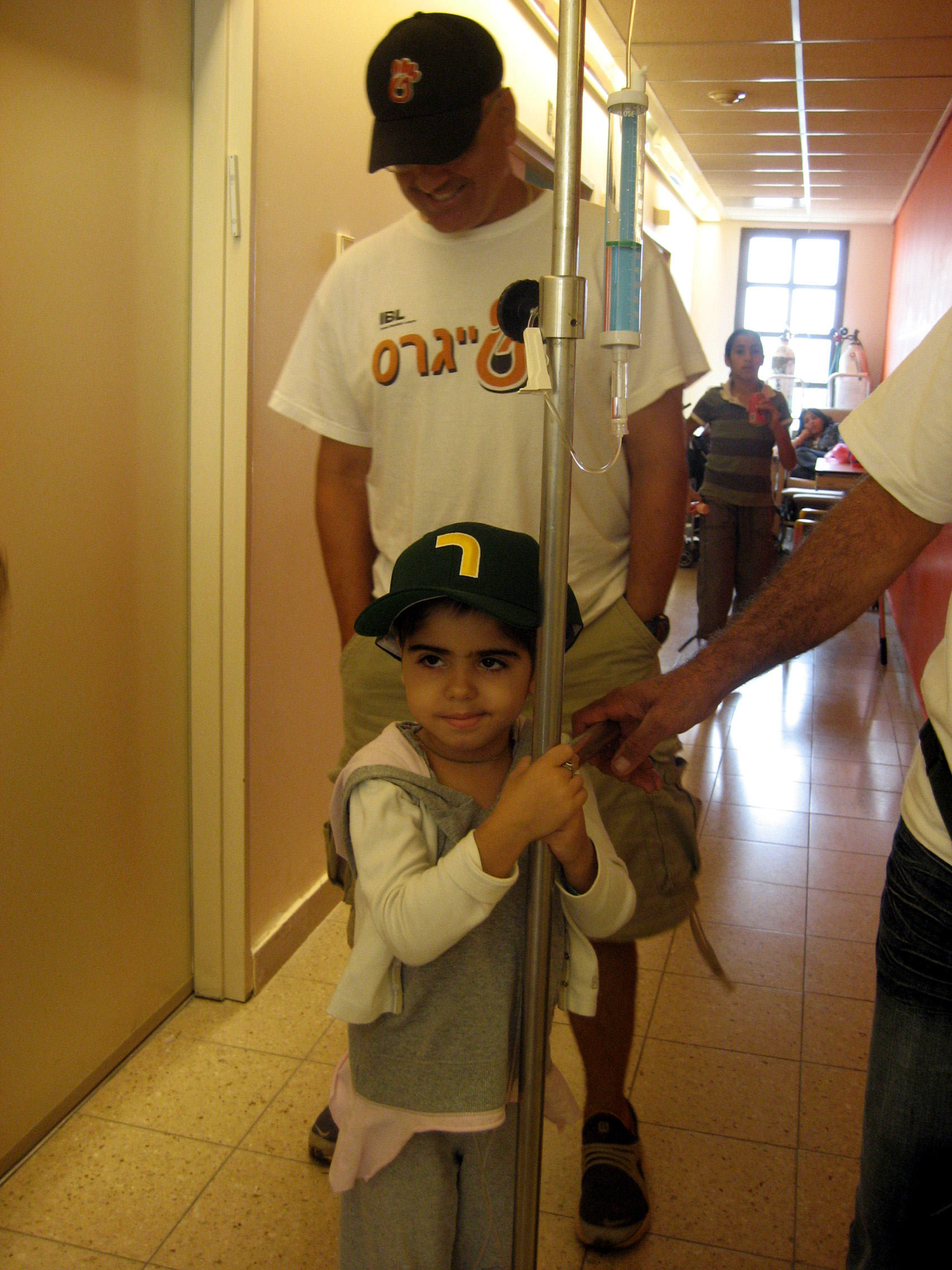 |
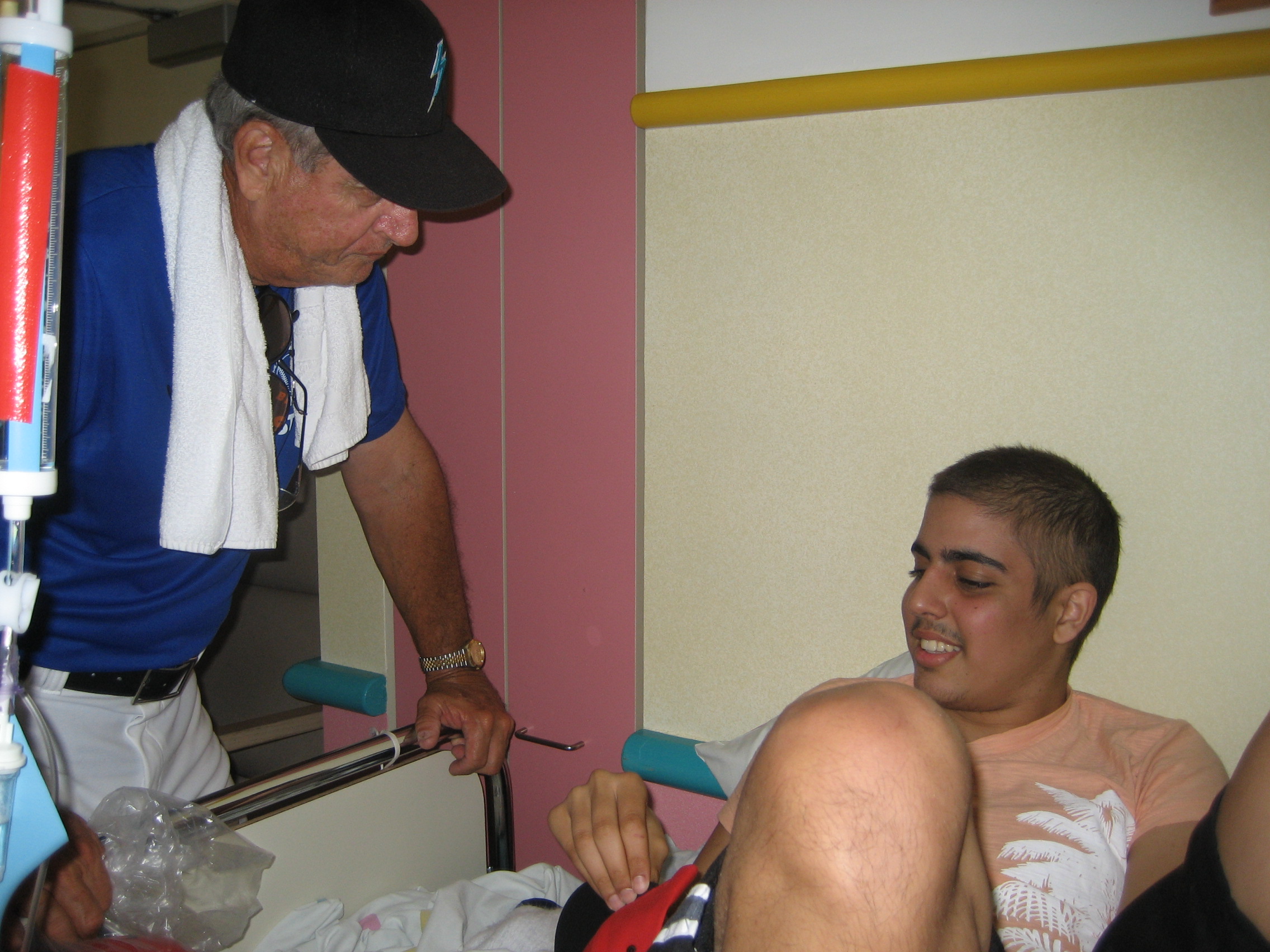 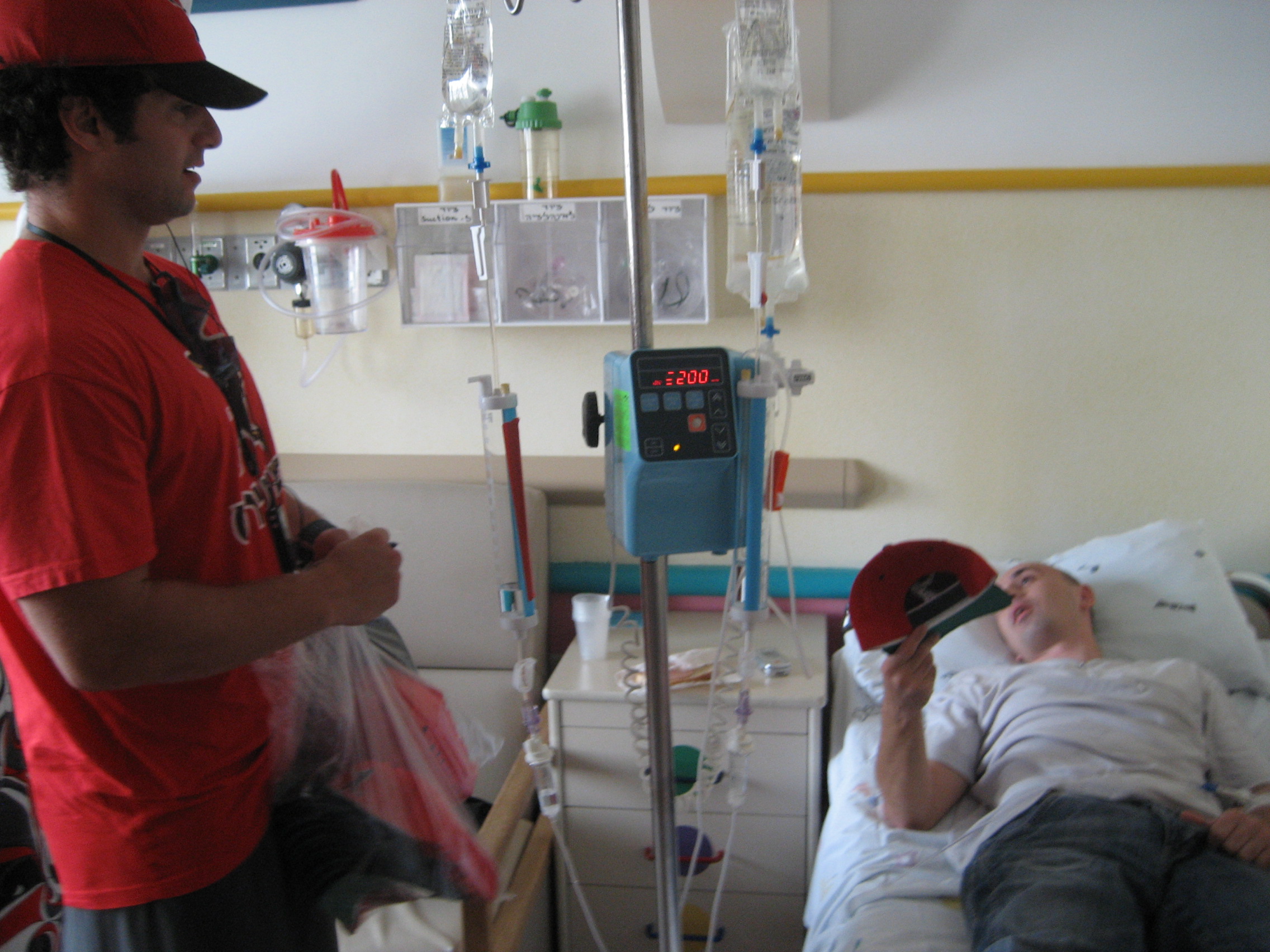 |
Left: Netanya Tiger Manager Ami Baran walks down hallway of
Schneider Hospital with a young girl wearing a Ra'anana Express hat.
Top right: Tel Aviv Lightning Manager Steve Hertz talks baseball
with a young patient. Bottom right: Ryan Crotin of the Petach
Tikvah Pioneers presents a hat to a patient. The Israel Baseball League
conducted the visits just prior to All-Star Baseball Game on Sunday
Nathaniel Edelstein photos
Israel Baseball All-Stars visit Schneider Hospital
By Nathaniel Edelstein
PETACH TIKVA— Nine of the
Israel Baseball League's brightest stars kicked off the first-ever
All-Star day with a visit to the Schneider Children's Medical Center
of Israel to visit children battling cancer. Player representatives
from all six of the IBL's
teams along with Israeli manager Ami Baran of the Netanya Tigers,
American manager Steve Hertz of the Tel Aviv Lightning, and
Australian skipper Shaun Smith of the Ra'anana Express handed out
hats and signed autographs for their young fans.
The day was made possible with the help of benefactors Jacob and
Drora Amit, who lost their grandson Ro'e to cancer at the age of
five, and have since spent countless hours coordinating events for
the children of Schneider Medical Center.
"They know baseball and they love the baseball hats," said Jacob.
"It's terrific for them because they see the players and it really
puts a smile on their faces."
While the day was certainly fun for the children, it might have been
equally special for the players themselves.
"Being able to break up their day a little bit and even spend five
minutes with them and interact was hopefully a thrill for them
because it was definitely a total thrill for me to have them be a
part of myday," said Modi'in Miracle second baseman Noah Walker.
"It's a totally moving experience," added Bet Shemesh Blue Sox
pitcher Rafael Bergstrom. I don't exactly know the situations of
each kid, but just seeing them in bed…obviously a lot of them don't
have hair, a lot of them can't move around well. It's pretty
powerful."
The day was so successful and meaningful for the both the players
and children that another hospital visit is already being planned to
Tel HaShomer Hospital. Players will once again give out hats and
sign autographs in hopes of bringing the same joy that the children
of Schneider's felt to the children of Tel HaShomer.
Becky Gutin's urban tree will grow at JCC
SAN DIEGO (Press Release)– The Gotthelf Art Gallery, part of the San Diego Center for Jewish Culture at the Lawrence Family Jewish Community Center, JACOBS FAMILY CAMPUS, is the recipient of a stylized tree sculpture by local artist Becky Guttin, which has been “planted” near the main entrance to the facility.
Transferred from Urban Trees 3 on San Diego Bay to the UTC area of La Jolla, this colorful sculpture brings to mind the beautiful colors of nature and welcomes thousands of people daily to the JCC. It shows the colors of a sunset on one side and the colors of a sunrise on the other. This cheerful piece, constructed of iron and ceramic tiles, is designed to make everyone who sees it just a bit happier. The work is for sale, proceeds benefiting the Gotthelf Art Gallery.
Guttin has participated in numerous exhibitions in a dozen countries and has been featured in twenty-four solo exhibitions in Mexico, the United States, and Israel. Her art is featured in thirty-six permanent collections, museums, public spaces, and private collections. Guttin has been a guest lecturer at biennales, conferences and universities; she has received art prizes and has participated in several residencies. She also volunteers at Scripps Hospital, Encinitas, where she leads art therapy workshops.
Guttin will also be featured in the upcoming Gotthelf Art Gallery exhibition, El Viaje, which opens on September 6 and runs through October 26, 2007. El Viaje celebrates Latin-born, Jewish artists who have made the journey from their native lands of Mexico and Cuba to live and become part of the diverse San Diego arts community. This exceptional mixed media show, filled with color and context, will also feature the art of Vivien Ressler, Claudie Oliver, Pepe Zyman, Michel Goldstein, and Lizbet Benrey.
The preceding story was provided by the Lawrence Family JCC
(continued from above)
OPERATOR: The next question is from Elise Labott, CNN.
QUESTION: Hi. Thank you. Can you hear me?
UNDER SECRETARY BURNS: Yes.
QUESTION: Okay. Nick, there's been a lot of talk in recent days about the fact that Saudi Arabia and a number of other Arab countries are not doing all they can in Iraq. And in fact, yesterday, Ambassador Khalilzad did some interviews on TV and said not only are Saudi Arabia and some other Arab countries like the UAE not doing all they can to help in Iraq, but that some of them are actually doing things to undermine the process. And I'm wondering if this is really the time when Iraq obviously is a huge priority for you, if you should be rewarding these countries that, at the same time, you are criticizing and voicing your concerns to them about their activities in Iraq, specifically in helping the insurgency and the fact that U.S. weapons, you know, indirectly could go to them.
QUESTION: Well, Elise, I would answer your question by saying that Saudi Arabia specifically has been a friend of the United States since the Second World War and one of our most important regional partners. And the security assistance to Saudi Arabia, to Kuwait, to the United Arab Emirates, to Oman, to Bahrain and the other GCC countries is very much in our national interest because these countries are countries that serve our interest of stability and of long-term -- creating the basis for long-term peace in the Middle East. Without them, that would be a very difficult proposition. And so we justify the arms sales based on the importance of these countries to our vital security interests in the Gulf and in the Middle East in general; first point.
Second point; all of these countries have security needs that need to be met because of the increased threat of terrorism, because of the problem of proliferation of WMD in the region and because of the specter of a large -- of a strengthening, more aggressive Iran in the region itself, quite apart from the issue of nuclear weapons in the way that Iran is trying to expand its regional, political, military and economic influence.
Third, we certainly want these countries to be supportive of the Iraqi Government. And when we have disagreements with these countries about that, we are very quick to say so and we will hope very much that all of these Arab countries will be supportive of the Iraqi Government's attempts to strengthen itself and to resolve many of the internal problems of Iraq. So the issue is not un-related. I wouldn't say that, Elise -- you've asked a direct and related question -- but I think you do have to see it in that larger perspective, where we're going forward with assistance for a variety of reasons that speak to our national interest.
OPERATOR: (Inaudible)…, your line is open.
QUESTION: Thank you, good morning. Good morning, actually, most of my questions have been asked. I'll just be a little more specific on the Iraq question. In connection to these arms sales, have any particular assurances been received, or will they be sought during the current trips with regard to support for Iraq? And just a procedural question on your e-mail, I noticed that it said this was on the record, but the audio was not for broadcast. And I wondered if you would just mind clearing the audio for broadcast for those of us for whom the quotes are the sound bytes.
UNDER SECRETARY BURNS: Okay. Well, on that last question, it sounds like a very reasonable request, but I'll defer to my friend, Tom Casey.
MR. CASEY: It's fine with me.
UNDER SECRETARY BURNS: Yeah.
QUESTION: Great, thank you.
UNDER SECRETARY BURNS: Let me just say, in terms of -- I wanted to draw your attention to a statement that Prime Minister Olmert made yesterday, Sunday, in Jerusalem, where he said that we understand the need of the United States to support the Arab moderate states and there is a need for a united front between the U.S. and us regarding Iran.
Significant, that the Israeli Prime Minister would, in essence, go throw his support to this regional -- comprehensive regional approach by us to address the security needs of Israel, but also the Arab states. Certainly, during the trip this week when Secretary Rice and Secretary Gates talked to their -- our partners in the Middle East, Iraq will be issue number one. We want and we expect that there will be political support from the Arab countries to help stabilize Iraq. We hope that there will be economic support to that. And there is obviously a need of greater regional support for the Iraqi Government. So that's very much on our agenda.
But these -- this assistance package: The assistance package is part of our broader strategy, which is in the American national interest to strengthen our partners in the region. So we're going to go forward with it and we will justify it to the Congress on that basis on what's good for the United States. But, of course, we want these countries to be supportive of Iraq as well.
QUESTION: So there's no, sort of, quid pro quo regarding Iraq support. These countries could get tremendous amount of U.S. military equipment but still not be supportive or even be the opposite with regard to Iraq?
UNDER SECRETARY BURNS: There are no formal quid pro quos at all behind this, but it stands to reason that given the fact that Iraq is the number-one American foreign policy interest globally, we would want our friends in the region to be supportive, not only of what the United States is doing in Iraq, but what the -- but of the Iraqi Government itself. And we've made that point, obviously, repeatedly to these countries and we'll -- that will continue to be a major emphasis on our part.
QUESTION: Thank you.
OPERATOR: Pain Verjee, CNN, you may ask your question.
QUESTION: Hi, Nick. It's Zain. I'm also a Pain. (Laughter.) Just one thing; there's a feeling that your strategy could backfire and what it will do, on the one hand, is allow Ahmadi-Nejad to get a lot more support for his own hardline faction in Iran, as well as generate instability in the region and not the security that you want. What are your thoughts on both?
UNDER SECRETARY BURNS: Zain, pleasure to talk to you. I'm sorry if we got your name -- if someone got your name wrong. Well, I guess the way I’d answer that question would be to say that Iran has worried everybody in the region. If you travel around the Middle East, whether it's to Israel or the Palestinian territories or to the Gulf countries, as well as the other countries of Levant, everyone's concerned by the fact that Iran is arming and funding Hezbollah and Hamas, Palestinian-Islamic Jihad, PFLP General Command.
It was striking when Secretary Rice had her last Quartet meeting in Lisbon. I think it was the same day Ahmadi-Nejad was in Damascus meeting with the frontive country that supports terrorism in the Middle East. It supports everything that the rest of the world is trying to defend against. And so the Iranians are the ones who have caused this concern. Now we would call upon the Iranians to stop their military assistance to terrorist groups and we call upon them to stop their financial assistance.
We've tried to open the door to them. We have this channel in Iraq where Ambassador -- where Ryan Crocker, our Ambassador, has been meeting with the Iranian Ambassador to Iraq. We've certainly offered through Solana, representing the interests of the P-5, our renewed interest in having negotiations on the nuclear issue, but we've been rebuffed by Iran. So it's the Iranians that have started -- that have caused the concern in the first place.
I think in the region, it's going to be understood that one of the reasons for these sales -- one of them, but not all -- not the totality, is to enable these countries to strengthen their defenses and therefore, to provide a deterrence against Iranian expansionism and Iranian aggression in the future. Now that's not the only reason we're doing this, but it is a leading factor and I think it's the Iranians who have to answer questions about their regional policy. The countries of the region want the U.S. to be present, they want the U.S. to have a security assistance relationship with them, and they want the United States to remain a strong influence in the region. And this statement today buttresses that ambition. The countries of the region do not want to see Iran strengthen its own position and continue to fuel and fund these radical groups. That's how I'd answer your question.
QUESTION: But isn't that what part of the concern is that exactly what you're doing is going to allow Ahmadi-Nejad to capitalize on it and boost his own standing?
UNDER SECRETARY BURNS: I see the question, Zain, in the reverse. I -- today's announcement will be seen, I would predict, by the governments in the Gulf, as well as in Egypt and in Israel, as a reaffirmation of the American commitment to their security. They have told us that this type of step by us, a comprehensive way to address security concerns of the region, is absolutely necessary. So on the contrary; I don't think it's going to embolden the Iranians or give them an excuse to continue doing what they're doing. It is the region's wish that we engage in these -- in this military assistance, because the Iranians have caused the concern in the first place.
QUESTION: Thank you.
OPERATOR: David Wood, you may ask a question. I believe your line may be muted.
QUESTION: Good morning, Mr. Burns. It's Dave Wood at The Baltimore Sun. Can you hear me?
UNDER SECRETARY BURNS: Yes, I hear you fine, David.
QUESTION: Oh, good. I wonder if you could talk a bit about the relationship of this proposed arms sale to U.S. basing and access agreements and I wonder if, parallel to your technical negotiations with the Gulf states, whether you're going to be renegotiating any status of forces agreements or expanding American lily pad or CLS access agreements?
UNDER SECRETARY BURNS: The -- what we're announcing today is essentially our -- the levels of our assistance to Israel and Egypt and the intention to continue with our decades-long military assistance policies towards the Gulf states. And, of course, we also have basing agreements and status of forces agreements with all of these countries. They're not directly tied to these levels of assistance, but they're part of our overall military cooperation. So I'm not in a position today to say that we're ready to announce any new developments; that's the job of DOD. And I don't want to let you think, from what I've just said, that somehow there is an announcement imminent. I think we'll continue; we want to continue with the type of military cooperation we've had regarding basing, but that's a DOD issue for the future.
OPERATOR: The next question is from Andrea Mitchell, NBC News.
QUESTION: Thanks, Nick. Following up on the Iran question, you've made considerable efforts to try to reach out domestically to so-called, the formers, or moderates, or democracy groups inside Iran. Won't this help Ahmadi-Nejad internally -- not only externally but internally -- to follow up on Zain's question, in getting a counter-reaction in solidifying his domestic support?
UNDER SECRETARY BURNS: I don't think so at all, I mean -- Andrea, I actually think it works the other way. If you look at most of the recent public opinion polls about Iranian attitudes that have been published, the Iranians, obviously, are proud of their country, they're nationalistic, they want their country to succeed, but they are open to a relationship with the United States, most Iranians. They don't want to see their country in conflict with other countries. And I think what this will serve to do is to remind most Iranians that we are seeking a peaceful relationship with Iran. And I know that's true of the Arab states; no one wants to have a conflict-ridden relationship.
But if the Iranians that have caused a major, major turbulence in the region by going forward with this Damascus -- these summits in Damascus with Syria, with Hamas and Hezbollah all represented by the strengthening of their military and political assistance to most of the Middle East terrorist groups, this package answers the concern that the Arabs have. I think within Iran itself, it will have the effect among the reformers in Iran of indicating again how isolated the Iranians are and how few friends they have in the region.
And it will reinforce a concern that is present among the reformers in Iran that their country is upsetting the status quo in the Middle East. So I actually don't think that Ahmadi-Nejad will be able to capitalize very much on it. I'm sure he will try. I'm sure there will be speeches by Ahmadi-Nejad and his colleagues over the next couple of days that will try to take advantage of this. I don't think it's going to succeed inside Iran. It certainly isn't -- is not going to succeed in the Middle East in general, because that concern about Iran's behavior already exists.
QUESTION: And aside from hopes or expectations or wishful thinking, what evidence do you all have that the Saudis and others will respond to an implicit, at least, quid pro quo and be more helpful regarding Iraq?
UNDER SECRETARY BURNS: Well, first of all, on the question of security assistance with the Saudis and others, we've been talking to them for the last year. So they understand that we're not starting the latent -- the last stage of this, which is the formal process of identifying the specific systems and equipment that's going to be sold to them.
Secondly, we obvious -- since Iraq is issue number-one for us and since we have to succeed there, the Saudis and the others are not under any other impression but that. We hope they will be and we expect that they will be supportive of the Iraqi Government. I don't -- there's no contradiction there and I think they're very well aware of our views because we talk to them constantly about the situation in Iraq.
QUESTION: It just seems that the situation has been getting worse with more Saudi support for Sunni insurgents and you've been talking to them during this period where the situation has deteriorated.
UNDER SECRETARY BURNS: Yeah. I mean, you saw the Washington Post op-ed by Ken Pollack and Michael O'Hanlon. We think that there have been -- you know, there are some reasons to believe that we are finding some success on the ground. And we obviously will want to talk to -- continue to talk to the Saudis and others, the other Arab states about the need to be openly and politically supportive of the Iraqi Government.
QUESTION: Thank you Nick.
UNDER SECRETARY BURNS: Thanks Andrea.
OPERATOR: Michael Hirsch, you may ask your question.
QUESTION: Hey Nick, Mike Hirsch with Newsweek. I just was wondering -- I mean, do you expect us to forget about or to put aside what has been -- you know, the predominant foreign policy agenda, particularly in the Middle East, of this Administration? And Secretary Rice has spoken time and again about -- you know, the false stability created by U.S. policy in the past and you had -- you know, yet you have talked just now, you know, without any apparent sense of irony about the decades-long relationship we've had with these regimes, Saudi Arabia and Egypt and so on. I heard nothing about any conditions placed on this aid.
In fact, you seem to emphatically deny that there was any quid pro quo of any kind, particularly, you know, conditions in sort of the democratization, which, again, was the agenda that we heard so much about early in the second term. Can you address this apparent contradiction?
UNDER SECRETARY BURNS: Well, Mike, thank you for your question. We don’t normally deal in irony presenting our views. We try to present them, in effect, in a forward way. The fact is that given -- the Middle East is the most turbulent part of the world and the one most directly tied to vital American interests. And we never suspended our military assistance to Saudi Arabia or the other states at any time during this period. We have been constant supporters of their national security and we never suggested and Secretary Rice never suggested that we should somehow end the relationship with them that we had enjoyed with them for decades long.
But we are interested in the long-term political evolution of these countries towards greater freedom and greater democracy. And the fact is, I think Secretary Rice -- I remember even in her Cairo speech saying this, is that we couldn't expect to see results overnight. And so we continue with our security assistance relationship as we had always planned and we had never indicated anything otherwise back in 2005 and 2006. And yet at the same time, have a longer-term agenda trying to promote the kind of political and societal change that will lead to greater freedom --
QUESTION: This is a dramatic -- I mean, if I just might interrupt, this is a dramatic uptick in support for regimes without any apparent conditions for a change in those regimes.
UNDER SECRETARY BURNS: I don't -- there is no -- I don't see a contradiction. We were clear two years ago that we were going to continue our security relations with these countries. This is a continuation of military assistance that has been present over decades, but it is warranted by the increased threat to these countries by terrorist groups and by Iran in the region, so we certainly stand by it.
OPERATOR: At this time, there are no further questions in queue. If you do still have a question, please press *1 and record your name when prompted.
MR. CASEY: Well, actually, as long as we have nothing else in the queue here, Nick, thank you very much. I know we've taken a lot of your time this morning to have you present this. I'm very glad we were able to arrange this with you and appreciate everyone else joining us today. Thank you, everyone, for being with us. And Nick, good luck with your travel next week.
UNDER SECRETARY BURNS: Thank you very much. Thanks.
(Return to top)
Anti-boycott petition....
(Continued from above)
The leaders of SPME will continue to raise awareness and condemnation of the vote to promote a boycott by the UCU until it is overturned and the fundamental principles of freedom are restored to British academia. SPME will also monitor any instance where Israeli academics are excluded should any boycott take effect, and will implement the principles of the SPME Statement accordingly.
The full text of the SPME Statement reads: “We are academics, scholars, researchers and professionals of differing religious and political perspectives. We all agree that singling out Israelis for an academic boycott is wrong. To show our solidarity with our Israeli academics in this matter, we, the undersigned, hereby declare ourselves to be Israeli academics for purposes of any academic boycott. We will regard ourselves as Israeli academics and decline to participate in any activity from which Israeli academics are excluded."
Here is a link to the complete list of signatories to the Statement.
The signatories of the SPME Statement include the following Nobel Prize winners, university and foundation presidents, and leading scholars:
NOBEL PRIZE WINNERS—Alexei Alexeyevich Abrikosov, Nobel Prize-Physics, Distinguished Scientist, Argonne National Laboratory, USA; Kenneth Arrow, Nobel Prize—Economics, Stanford University; David Baltimore, Nobel Prize—Physiology/Medicine, Past President,California Institute of Technology; Claude Cohen-Tannoudji, Nobel Prize—Physics, Laboratoire de Physique de L’Ecole Normale Superiere , Paris, France; Robert F. Engle, Nobel Prize—Economics, New York University; Jerome Friedman, Nobel Prize—Physics, Massachusetts Institute of Technology; Donald A. Glaser, Nobel Prize—Physics, University of California at Berkeley ; Sheldon Lee Glashow, Nobel Prize—Physics,Boston University; Clive W.J. Granger, Nobel Prize—Economics, University of California, San Diego ; David Gross, Nobel Prize—Physics, Director, Kavli Institute for Theoretical Physics, Frederick W. Gluck Chair in Theoretical Physics, University of California at Santa Barbara; Herbert A. Hauptman, Nobel Prize—Chemistry, Medical Foundation of Buffalo; James J. Heckman, Nobel Prize—Economics,University of Chicago; Alan Heeger, Nobel Prize—Chemistry,University of California-Santa Barbara; Dudley R. Herschbach, Nobel Prize Chemistry, Harvard University; Avram Hershko, Nobel Prize—Chemistry, Distinguished Professor at the Unit of Biochemistry, Rappaport Faculty of Medicine, Technion; Roald Hoffmann, Frant H. T. Rhodes Professor of Humane Letters, Cornell University; Tim Hunt, Nobel Prize— Physiology/Medicine, Cell Cycle Control Laboratory, London Research Institute, Clare Hall Laboratories; Elfriede Jelinck, Nobel Prize—Literature, Austria; Daniel Kahneman, Nobel Prize—Economics, Professor of Psychology, Princeton University; Eric R. Kandel, Nobel Prize—Physiology/Medicine, University Professor, Columbia University; Walter Kohn, Nobel Prize—Physics, University of California-Santa Barbara; Arthur Kornberg, Nobel Prize—Physiology/Medicine, Emeritus Pfeiffer Merner Professor of Biochemistry, Stanford University School of Medicine; Roger Kornberg, Nobel Prize—Chemistry, Professor of Structural Biology Stanford University; Leon Lederman, Nobel Prize—Physics, Fermi National Accelerator Laboratory, University of Chicago; Marshall W. Nirenberg, Nobel Prize—Physiology/Medicine, Biochemical Genetics, National Institutes of Health; David Politzer, Nobel Prize—Physics, California Institute of Technology; Richard J. Roberts, Nobel Prize—Physiology/Medicine, New England Biolabs; Andrew V. Schally, Nobel Prize—Physiology/Medicine,Miller School of Medicine, University of Miami; Harold Varmus, Nobel Prize Physiology/Medicine, President,Memorial Sloan Kettering Cancer Center ; Steven Weinberg, Nobel Prize—Physics, Josey Regental Professor of Science, University of Texas, Austin; Elie Wiesel, Nobel Peace Prize, Andrew W. Mellon Professor in the Humanities, Boston University; Frank Wilczek, Nobel Prize—Physics; Herman Feshbach Professor of Physics, Massachusetts Institute of Technology
UNIVERSITY AND FOUNDATION PRESIDENTS—Lauren J. Anderson, President, Pacific Lutheran University; Lawrence S. Bacow, President, Tufts University; Esther Barazzone, President, Chatham University; Henry S. Bienen, President,Northwestern University; William R. Brody, President, Johns Hopkins University; Hank Brown, President,University of Colorado; Robert Brown, President, Boston University; Tom Buchanan, President, University of Wyoming; Nancy Cantor, Chancellor and President, Syracuse University; Robert Carothers, President, University of Rhode Island; Gerhard Casper, President Emeritus, Stanford University; David Clary, President, Magdalen College, Oxford University; Jared Cohon, President, Carnegie-Mellon University; Scott Cowen, President, Tulane University; Michael Crow, President,Arizona State University; Talbot "Sandy" D'Alemberte, President Emeritus and Professor, Florida State University; Gail Dinter-Gottlieb, President and Vice Chancellor, Arcadia University, Canada; James Doti, President, Chapman University; Robert C. Dynes, President, University of California; Allen K Easley, President and Dean, William Mitchell College of Law; Alfred Ebenbauer, Former Rector, University of Vienna; Mark Emmert, President, University of Washington; Daniel Mark Fogel, President, University of Vermont; Carol Garrison, President, University of Alabama; Ann Weaver Hart, President, Temple University; John L. Hennessy, President, Stanford University; Richard Herman, Chancellor, University of Illinois, Urbana-Champaign; Susan Hockfield, President, MIT; Richard M. Joel, President, Yeshiva University; Shirley Strum Kenny, President, Stony Brook University, State University of New York; Steven Knapp, President-Elect, George Washington University; Dr. Helmut Konrad, Former Rector, University of Graz , Graz Austria; Ronald D. Liebowitz, President, Middlebury College; Joseph M. McShane, SJ, President, Fordham University; James Moeser, Chancellor, University of North Carolina; C.D. Mote Jr., President, University of Maryland; Ross Paul, President, University of Windsor; G. David Pollick, President Birmingham Southern College; Rajendra Prasad, Rector, Jawaharlal Nehru University, New Delhi, India; Jehuda Reinharz, President, Brandeis University; Richard L. Rubenstein, President Emeritus and Distinguished Professor of Religion, University of Bridgeport; Wolfgang Schütz, RectorMedical University of Vienna; Beheruz N. Sethna, Professor & President, University of West Georgia; Donna Shalala, President, University of Miami; Robert N. Shelton, President, University of Arizona; Lee Shulman, President, The Carnegie Foundation for the Advancement of Teaching; Ralph Snyderman, Chancellor Emeritus , Duke University; Graham Spanier, President, Penn State University; Stephen Joel Trachtenberg, President, The George Washington University; Leslie Wagner, Chancellor, University of Derby, UK; Kevin Wildes, S.J., President, Loyola University, New Orleans; Robert E. Witt, President, University of Alabama; Mark G. Yudof, Chancellor, University of Texas; Daniel Zajfman, President and Professor of Physics, Weizmann Institute of Science
The preceding article was provided by Scholars for Peace in the Middle East
Skin care products...
(Continued from above)
It also enables vitamins to remain stable. Today's creams may boast that they contain vitamin A, and vitamin E, but in actual fact these vitamins degrade quickly. Harpaz brings out some graphs that prove the point. In tests, after about 40 days there is less than 40% of vitamin A left in most commercial formulations. After about 170 days, there is virtually nothing left. The same is true of vitamin E. In commercial applications the vitamin has disappeared by about 160 days.
In comparison, Tagra's microencapsulated vitamins remain active for much longer. Even after 350 days, vitamin A has only degraded by 15%, while after over a year, the vitamin E has only degraded by 10 percent.
"We keep the vitamins fresh until they are needed," says Harpaz. "Using our technology vitamins can stay active for over a year with very little degradation. We stabilize the material and increase the efficacy of creams enormously."
Tagra's technology has sparked a great deal of interest from the industry. In 2004, the company worked with skin care giant Estee Lauder to create a day care cream, DayWear Plus, which includes microcapsules of color pigment. When you squeeze the $40 cream out of the tube it's the usual pale color. When you rub it into your skin, however, the microcapsules burst open, adding a healthy blush to your skin. "You immediately look better," says Harpaz. "Instead of having to put on make-up and cream, you can just put on cream. It has everything you need for the skin."
This new skin care niche has proved extremely successful and is now one of the company's top selling ranges. DayWear Plus was the first generation of this technology, and developed especially for Estee Lauder. Today the company is developing the next generation of pigments, offering virtually any shade of color manufacturers might want.
Tagra's technology also solves many manufacturing problems. In the past pigments required separate production lines because of the contamination they created in the manufacturing process. Using capsules, there is no contamination. They can be added at the end of a normal production process.
Aside from Estee Lauder, most of Tagra's current products have been for smaller skin care companies such as Israeli cosmetics company, Careline; Clay Park Labs in the US; or Spanish, Italian, Korean, Australian and French companies. In the next year or two, however, a whole host of new products designed specifically by its multinational clients will be introduced to the market.
Harpaz doesn't want to name names. It's too early in this competitive world to announce anything until the products are actually out on the shelves. "Today we are only working with multinationals," he says. "Now our real work is starting."
Tagra Biotech was founded by businessman Ron Folman (now chairman and the major shareholder in the company) and a group of Russian immigrant scientists in 1998.
The company spent the first three years of its life in the Misgav Venture Accelerator incubator. It was a long development process and the company only really began commercializing its products in 2004.
Today, Tagra employs 25, and is growing fast. Management officers are in Netanya, and its manufacturing facility and R&D is in the north of the country. At present, sales are doubling every year and Harpaz expects revenues to reach $10 million within three years.
Tagra's strategy is to start working in the field of cosmetics and then move into its next markets - dental care and topical pharmaceuticals. "We started with cosmetics as a way to generate fast sales and prove our technology," says Harpaz. "It is also a huge and lucrative market with a low barrier to entry."
Both dental care and pharmaceuticals will be harder markets to enter. In the dental care industry Tagra is working on micro capsules of vitamins to introduce to toothpastes. In the past it has been very difficult to add vitamins because the toothpaste is an aggressive cleaning agent. Work on this has already begun.
Tagra is also working on new topical applications with the pharmaceutical industry whereby a drug is enclosed in the micro capsules and delivered to the skin when necessary. First applications of this will not be seen for some years, as it takes time to go through the regulatory process of clinical trials, but Harpaz says that R&D has already begun in collaborations with significant multinationals.
And beyond this? Scent encapsulated in cleaning fluids, released as you clean the floor... the possibilities as Harpaz points out, are endless.
"Our achievement is that we have proved it works and already sell 15 products off-the-shelf. These are just the start. Our real products are coming in soon," says Harpaz.
The preceding article was distributed by Israel's Ministry of Foreign Affairs
(Continued from above)
Second Place (TIE):
Golda Leah Chapter of the Florida Atlantic Region for their study
group of 80 to100 participants who gathered monthly to focus on a
different Jewish community from various world locations and points
in history. Areas of study included, among others, 15th century
Seville, 16th century Venice, and 19th century Frankfurt.
Participants learned about Jewish history and communities
interactively, thereby better understanding the impact these past
communities have on our lives as Jews today. Each meeting was
facilitated by a group member who used Allan Levine’s book,
Scattered Among the Peoples, to help them present a community, often
by impersonating one of its more famous members with the assistance
of visual aides and handouts. Many of the sessions also included
relevant speakers, such as Diane Abravanel, a descendant of the
famous Abravanel family, who attended the Seville session.
Lois Cohen and Barbara Grau accepted the award on behalf of the
chapter.
Pasco Chapter of the Florida Central Region for their study group
that focused on Sephardic Jewry, with special emphasis on the
methods Jewish people use to adapt to exile and maintain Jewishness
as a minority in America. The first meeting featured Sephardic
dishes, cookbooks, and music. Each member received a folder with
timelines and maps and was given access to the group’s lending
library. In each subsequent meeting, one Sephardic dish was
presented and members opened the session by sharing what they had
read from the library that month. Topics included “The Golden Age,”
“Sephardic Life in Latin America,” and “Destruction of Cordoba and
Formation of City States,” among others.
Sharon Lee Sisselsky accepted the award on behalf of the chapter.
Third Place (TIE):
Pearl Landau Main Line Group of the Greater Philadelphia Chapter for
their study group that focused on “Our Extraordinary Jewish Women
Scientists.” Members researched female scientists and educated other
participants during the study sessions. Scientists presented
included Dr. Devra Davis, a contemporary epidemiologist and
toxicologist at Carnegie Mellon University, and Rita
Levi-Montalcini, a neurobiologist and Nobel Prize Winner in
Medicine.
Shirley Chalick accepted the award on behalf of the chapter.
Teaneck-Hackensack Chapter of the Northern New Jersey Region for
their study group, which has been meeting since 1993 and this year
focused on the Holocaust. Since many of the members were Holocaust
survivors, this year’s topic was an extremely emotional one,
inspiring members to bring pictures, mementos, and stories to the
discussions. Subtopics included “Art during the Holocaust” and “FDR
and the Holocaust.”
Marilyn Saposh accepted the award on behalf of the chapter.
Hadassah launched the Hannah L. Goldberg Study Awards in 1981 to
emphasize its commitment to interactive Jewish learning. Since its
inception in 1912 as a study circle, Hadassah has encouraged and
facilitated peer-led Jewish study for thousands of women of all ages
across the nation. The award is named in honor of the late Hannah
Goldberg, a woman profoundly committed to Jewish education, who
served Hadassah as executive director from 1953-1971.
The preceding story
was provided by Hadassah






 News
Sleuths:
News
Sleuths:  The
foremost environmentally friendly packaging company, Bubbla,
seeks sales personnel throughout the three-state area to
demonstrate and sell its packaging systems. We offer sales
assistance, payment for pre-qualified customer demonstrations
and a high commission structure for independent representatives.
To find out more, email us at
The
foremost environmentally friendly packaging company, Bubbla,
seeks sales personnel throughout the three-state area to
demonstrate and sell its packaging systems. We offer sales
assistance, payment for pre-qualified customer demonstrations
and a high commission structure for independent representatives.
To find out more, email us at